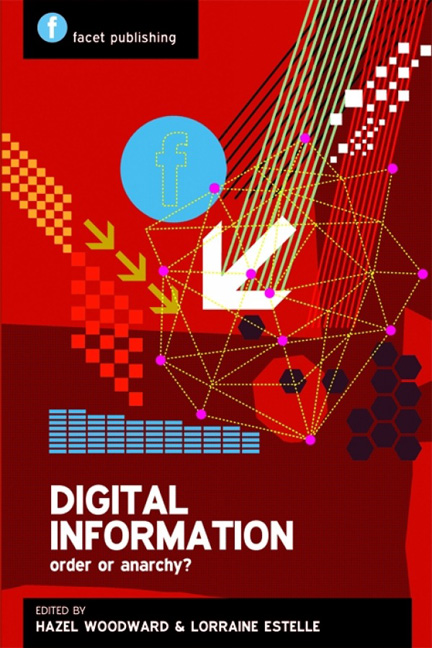Book contents
- Frontmatter
- Contents
- Acknowledgements
- Contributors
- Preface
- 1 Introduction: digital information, an overview of the landscape
- 2 Scholarly communications: the view from the library
- 3 Scholarly communications: the publisher's view
- 4 E-books and scholarly communication futures
- 5 Digitizing the past: next steps for public sector digitization
- 6 Resource discovery
- 7 Who owns the content in the digital environment?
- Index
1 - Introduction: digital information, an overview of the landscape
Published online by Cambridge University Press: 08 June 2018
- Frontmatter
- Contents
- Acknowledgements
- Contributors
- Preface
- 1 Introduction: digital information, an overview of the landscape
- 2 Scholarly communications: the view from the library
- 3 Scholarly communications: the publisher's view
- 4 E-books and scholarly communication futures
- 5 Digitizing the past: next steps for public sector digitization
- 6 Resource discovery
- 7 Who owns the content in the digital environment?
- Index
Summary
As seasoned information professionals it is easy to think that we have a reasonable understanding of the way in which the world of information and associated technologies is moving. However, the world is changing fast and many of our core beliefs and understandings will, without doubt, be impacted by these changes. In the words of Clifford Lynch:
Digital technologies have opened the door to a host of new possibilities for sharing knowledge and generated entirely new forms of content that must be made broadly available.
(ARL, 2009)Take, for example, the way in which users search for information. Only a few years ago, librarians would advise that the starting point for all literature searches should be an abstracting and indexing (A&I) service, or a reference publication such as a handbook or encyclopedia. While this advice is still given in appropriate circumstances, all librarians know that everyone (ourselves included) uses an internet search engine such as Google, Google Scholar or Yahoo! as a first port of call. We know this by talking to, and observing, our users, and recent research by the Centre for Information Behaviour and the Evaluation of Research (CIBER, 2008) has validated it.
In 2009 the UK Serials Group (UKSG) ran a student competition. Entrants were asked to write a short submission on how they used libraries, electronic resources and the internet; the winner was then invited to run a workshop at the 2009 UKSG conference. The winner was Claire Duddy, and her workshop was a runaway success. Duddy wrote in a subsequent article for Serials:
As a librarian (in-waiting) even the idea of a ‘quick and dirty’ search with Google is an illicit thrill. It is almost too easy: shouldn't there be some effort involved in finding useful, valid information? And if librarians use Google, aren't we just undermining ourselves? It is a difficult thing then to admit: Google is my first stop for all my information needs, whether I am researching my dinner or my dissertation.
However, she went on to say:
Librarians who accept the importance of Google in their users’ academic lives are easier for users to relate to. They can also help to encourage research that takes in a wide variety of sources and types of information.
- Type
- Chapter
- Information
- Digital InformationOrder or anarchy?, pp. 1 - 34Publisher: FacetPrint publication year: 2009

